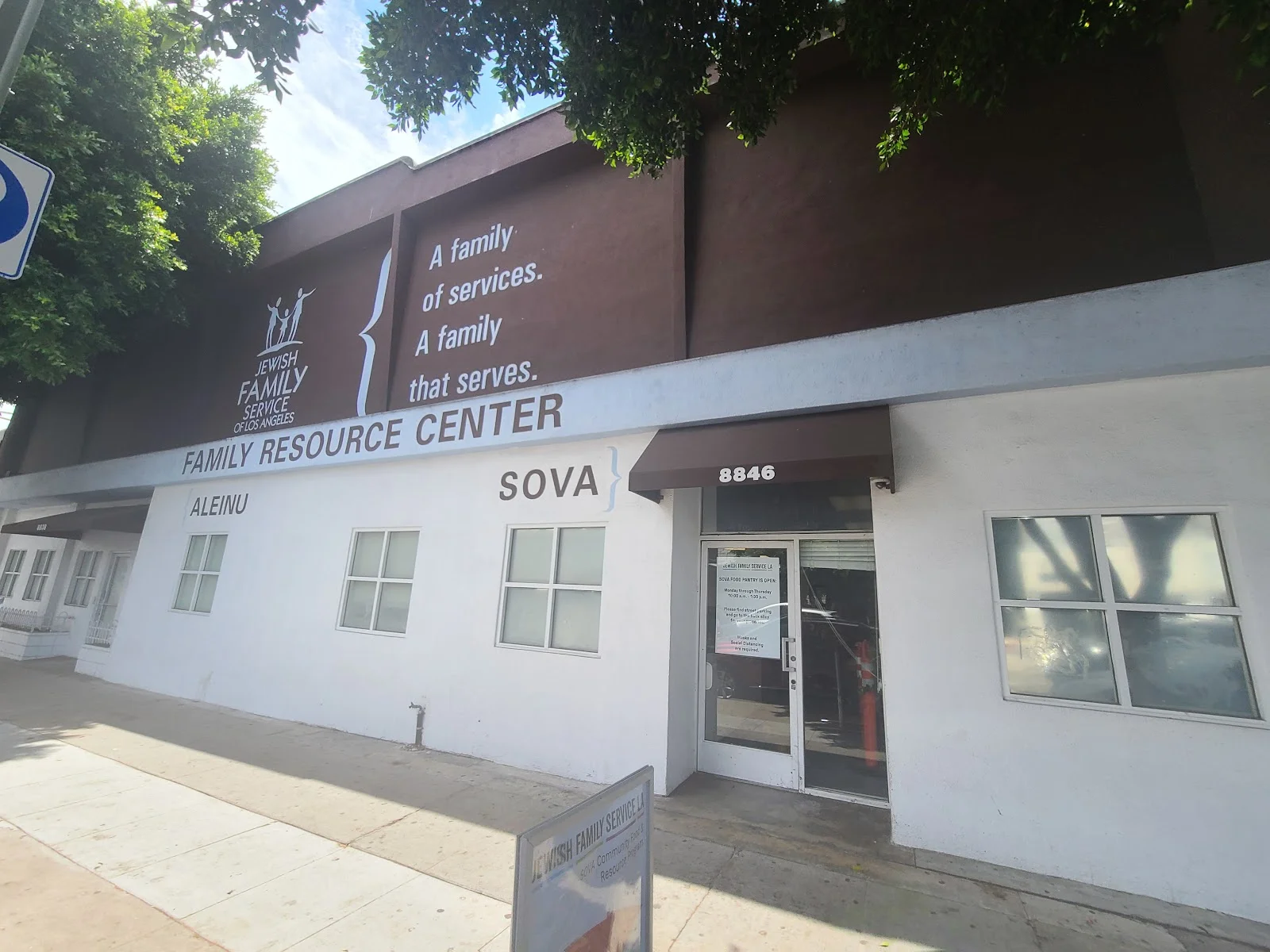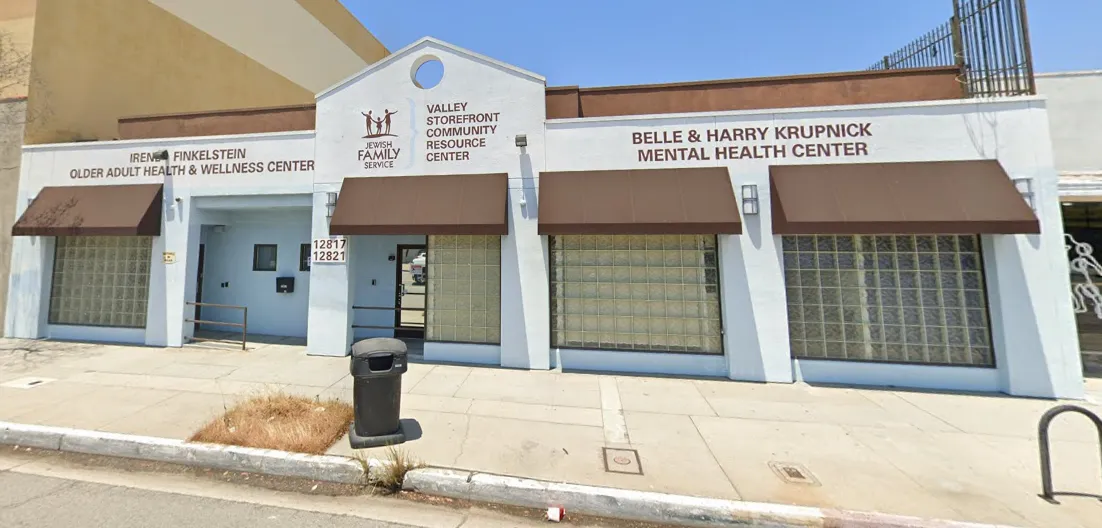Jewish Family Service - Pico Robertson Family Resource Center Information
Treatment
Who We Treat
- Young Adults (18–25)
- Adults
- Seniors/Older Adults
- Midlife Adults
- Older Adults
- Male and Female
- Pregnant/Postpartum Women
- Pregnant Women
Treatment Focus
- Anxiety
- Depression
- Trauma
- Older Adults
- Pregnant Women
Approaches
- Individual Treatment
- Evidence-Based
- Family Involvement
- Spiritual Emphasis
- Family Therapy
- Group Therapy
- Cognitive Behavioral Therapy (CBT)
- 1-on-1 Counseling
- Life Skills Training
Conditions We Treat
- Depression
- Anxiety
- Grief & Loss
- Trauma
- Perinatal Mental Health
- Grief and Loss
- Stress
Languages
- Farsi
- English
- Russian
- Spanish
- Hebrew
Aftercare
- Outpatient Treatment
Level of Care
- Outpatient
- Virtual & In-Home Care
Experience
Personal Amenities
- Air-Conditioned Rooms
Special Considerations
- Wheelchair Accessible
- Clients Who Have Experienced Domestic Violence
- Family Program
Smoking and Vaping Policy
- Smoking Not Allowed
- Vaping Not Allowed
Accreditations
-
Commission on Accreditation of Rehabilitation Facilities (CARF)
CARF accreditation is a prestigious recognition for organizations in rehabilitation and human services. It signifies that an organization meets rigorous quality standards and is committed to providing top-notch care. Achieving CARF accreditation involves a thorough evaluation process, including on-site surveys, to ensure excellence in programs and services. This accreditation boosts an organization's credibility, assures clients and funders of quality, and promotes ongoing improvement in the field of rehabilitation and human services.

-
SAMHSA certification for opioid treatment program (OTP)
Accreditation by the Substance Abuse and Mental Health Services Administration (SAMHSA) for Opioid Treatment Programs (OTPs) signifies that a program has met strict standards for providing high-quality care to individuals with opioid use disorders. It assures patients, families, and communities that the OTP follows evidence-based practices, employs qualified staff and maintains a safe and effective treatment environment. This accreditation reflects the program's commitment to addressing the opioid epidemic and promoting recovery.
Additional Locations
Jewish Family Service - Pico Robertson Family Resource Center Accepts The Following Insurance Plans
Find the best treatment options. Call our free and confidential helpline today!







